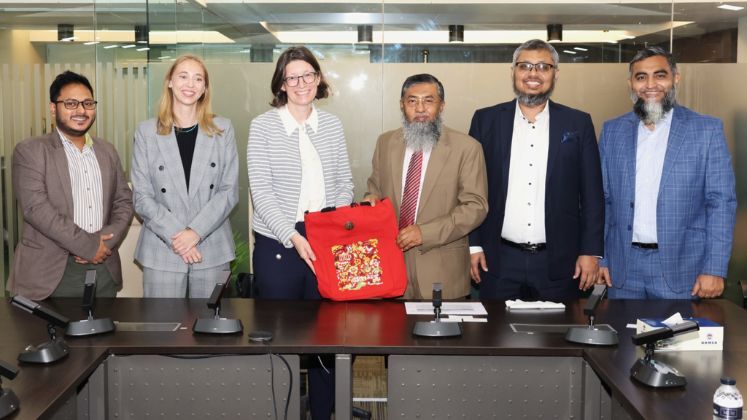
A German Embassy delegation met with the leadership of the Bangladesh Knitwear Manufacturers and Exporters Association (BKMEA) on Monday (18th August) at the association’s Dhaka office to discuss Bangladesh’s upcoming graduation from the least developed country (LDC) category and its implications for trade.
The discussions covered international market challenges, fair pricing issues, and the impact of Germany’s Human Rights and Environmental Due Diligence (HRDDD) Act on bilateral trade.
The meeting was chaired by BKMEA President Mohammad Hatem, with Executive President Fazlee Shamim Ehsan and Director Rajiv Chowdhury in attendance. The German side was represented by Deputy Head of Mission Anja Kersten, Attachée Melanine Pfnner, and Economic Affairs Officer Mehrab Bin Tarek.
Hatem highlighted that Bangladesh currently exports the largest share of its products to the European Union under the Generalized System of Preferences (GSP) facility, which will no longer apply after LDC graduation. He noted that the country is “not yet fully prepared to face the transition” and sought the embassy’s cooperation if the government considers requesting a postponement.
On the HRDDD Act, he pointed out that while the law is binding, many buyers are unwilling to pay fair prices in line with its requirements, calling this “unethical procurement practices.” He urged German support in ensuring fair pricing for Bangladeshi RMG products.
Addressing US tariffs, Executive President Fazlee Shamim Ehsan said the current arrangement remains satisfactory but stressed the importance of long-term stability. He called for continued government engagement to secure favorable trade terms.






